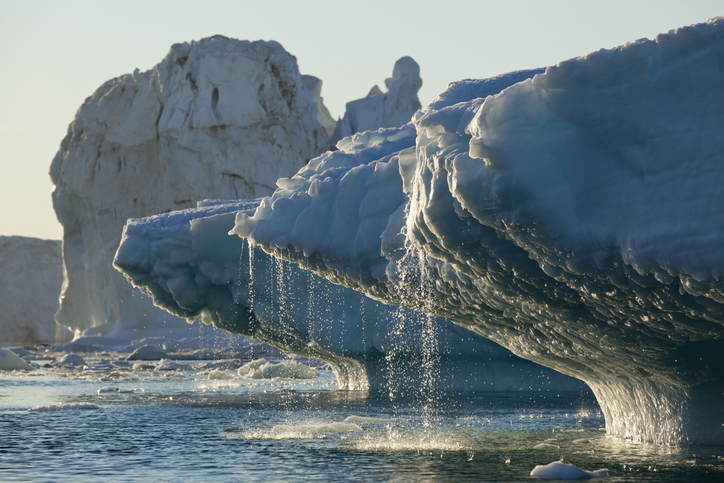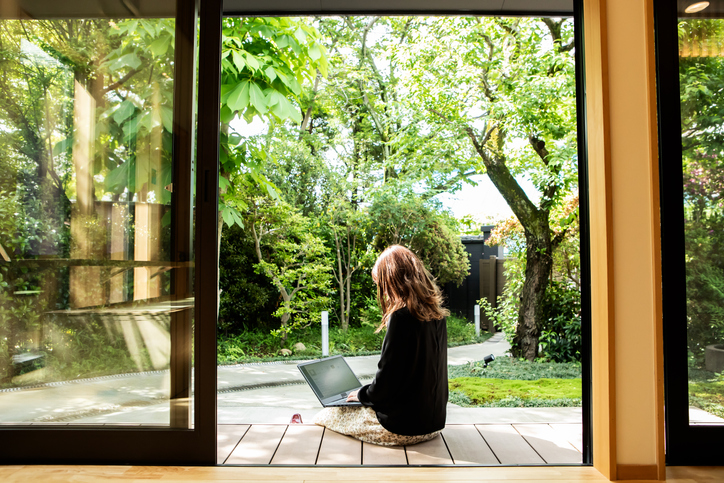Patagonia Founder Is Giving His Company Away in Pledge to Fight Climate Change
Yvon Chouinard says nearly 50-year-old outdoor clothing brand will be owned by trust and nonprofit, rather than sell or go public
Patagonia founder Yvon Chouinard is giving away the multibillion-dollar outdoor apparel business he founded nearly 50 years ago, with a goal of helping to tackle climate change.
Mr. Chouinard and his family have transferred their ownership of Patagonia to a trust and a nonprofit organisation as opposed to taking the privately held company public or selling it, the 83-year-old founder said in a letter Wednesday, titled “Earth is now our only shareholder.”
“It’s been nearly 50 years since we began our experiment in responsible business, and we are just getting started,” said Mr. Chouinard, a world-class mountain climber who started importing rugby shirts and other apparel in the 1970s for his friends to wear. “If we have any hope of a thriving planet—much less a thriving business—50 years from now, it is going to take all of us doing what we can with the resources we have. This is another way we’ve found to do our part.”
Patagonia, based in Ventura, Calif., didn’t immediately respond to a request for comment.
The company made a name for itself selling fleece jackets, board shorts and plaid shirts. The fleece vests in particular have developed a cult following from people who work in finance, while the company’s environmental- and social-conscious practices have earned dedicated buyers in other consumer spheres. Patagonia had annual revenue of $1 billion from 2017 to 2020.
Patagonia will remain a for-profit business under the new arrangement and will continue to be run by chief executive Ryan Gellert, Mr. Chouinard said. The company will also continue donating 1% of its sales to environmental nonprofit groups, he said.
The trust, called the Patagonia Purpose Trust, owns 2% of the company and all of the voting stock. It will be tasked with protecting Patagonia’s existing values and independence, Mr. Chouinard said. The nonprofit organisation, called the Holdfast Collective, owns 98% of the company and all the nonvoting stock, which doesn’t give it decision-making authority. It will be charged with taking the profits generated by Patagonia and using those funds to address climate change.
Patagonia said in a statement that it expects to pay out roughly $100 million a year to Holdfast Collective, depending on the health of the business.
Stacy Palmer, who has been editor of the Chronicle of Philanthropy since it was founded in 1988, said it was the first she has heard of an arrangement such as this.
“As far as I know, this is extraordinarily different than what others have done because of Patagonia’s size and profitability,” Ms. Palmer said.
She noted that Holdfast Collective is a 501(c)(4) not-for-profit organisation, which allows it to use the money to advocate for causes and political candidates, not just to give to charities.
“This means that the money is intended to shape policy and politics, more than, say, supporting a charity that does river cleanup,” Ms. Palmer said. “That’s a lot of money pouring into advocacy and could be very powerful.”
Mr. Chouinard has said that he approaches leading his company as a sort of a road map for aspiring business owners.
“I never even wanted to be in business,” he said in a 2012 interview with The Wall Street Journal. “But I hang onto Patagonia because it’s my resource to do something good. It’s a way to demonstrate that corporations can lead examined lives.”
The Chouinard family will oversee leadership of the Patagonia Purpose Trust and will spearhead the philanthropic work of the Holdfast Collective. The family will also remain member of Patagonia’s board of directors.
 Copyright 2020, Dow Jones & Company, Inc. All Rights Reserved Worldwide. LEARN MORE
Copyright 2020, Dow Jones & Company, Inc. All Rights Reserved Worldwide. LEARN MORE
This stylish family home combines a classic palette and finishes with a flexible floorplan
Just 55 minutes from Sydney, make this your creative getaway located in the majestic Hawkesbury region.
Continued stagflation and cost of living pressures are causing couples to think twice about starting a family, new data has revealed, with long term impacts expected
Australia is in the midst of a ‘baby recession’ with preliminary estimates showing the number of births in 2023 fell by more than four percent to the lowest level since 2006, according to KPMG. The consultancy firm says this reflects the impact of cost-of-living pressures on the feasibility of younger Australians starting a family.
KPMG estimates that 289,100 babies were born in 2023. This compares to 300,684 babies in 2022 and 309,996 in 2021, according to the Australian Bureau of Statistics (ABS). KPMG urban economist Terry Rawnsley said weak economic growth often leads to a reduced number of births. In 2023, ABS data shows gross domestic product (GDP) fell to 1.5 percent. Despite the population growing by 2.5 percent in 2023, GDP on a per capita basis went into negative territory, down one percent over the 12 months.
“Birth rates provide insight into long-term population growth as well as the current confidence of Australian families,” said Mr Rawnsley. “We haven’t seen such a sharp drop in births in Australia since the period of economic stagflation in the 1970s, which coincided with the initial widespread adoption of the contraceptive pill.”
Mr Rawnsley said many Australian couples delayed starting a family while the pandemic played out in 2020. The number of births fell from 305,832 in 2019 to 294,369 in 2020. Then in 2021, strong employment and vast amounts of stimulus money, along with high household savings due to lockdowns, gave couples better financial means to have a baby. This led to a rebound in births.
However, the re-opening of the global economy in 2022 led to soaring inflation. By the start of 2023, the Australian consumer price index (CPI) had risen to its highest level since 1990 at 7.8 percent per annum. By that stage, the Reserve Bank had already commenced an aggressive rate-hiking strategy to fight inflation and had raised the cash rate every month between May and December 2022.
Five more rate hikes during 2023 put further pressure on couples with mortgages and put the brakes on family formation. “This combination of the pandemic and rapid economic changes explains the spike and subsequent sharp decline in birth rates we have observed over the past four years,” Mr Rawnsley said.
The impact of high costs of living on couples’ decision to have a baby is highlighted in births data for the capital cities. KPMG estimates there were 60,860 births in Sydney in 2023, down 8.6 percent from 2019. There were 56,270 births in Melbourne, down 7.3 percent. In Perth, there were 25,020 births, down 6 percent, while in Brisbane there were 30,250 births, down 4.3 percent. Canberra was the only capital city where there was no fall in the number of births in 2023 compared to 2019.
“CPI growth in Canberra has been slightly subdued compared to that in other major cities, and the economic outlook has remained strong,” Mr Rawnsley said. “This means families have not been hurting as much as those in other capital cities, and in turn, we’ve seen a stabilisation of births in the ACT.”
This stylish family home combines a classic palette and finishes with a flexible floorplan
Just 55 minutes from Sydney, make this your creative getaway located in the majestic Hawkesbury region.






















